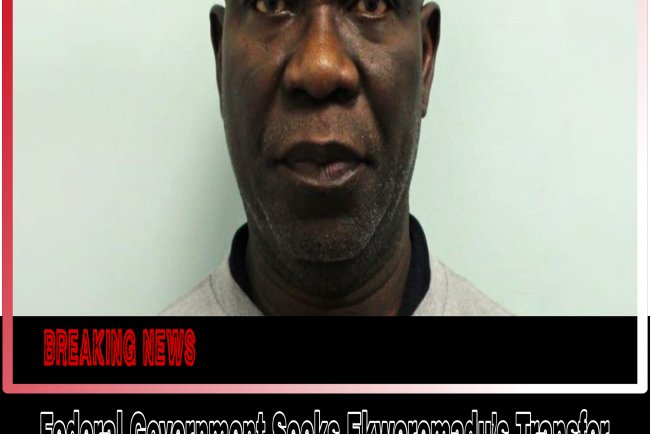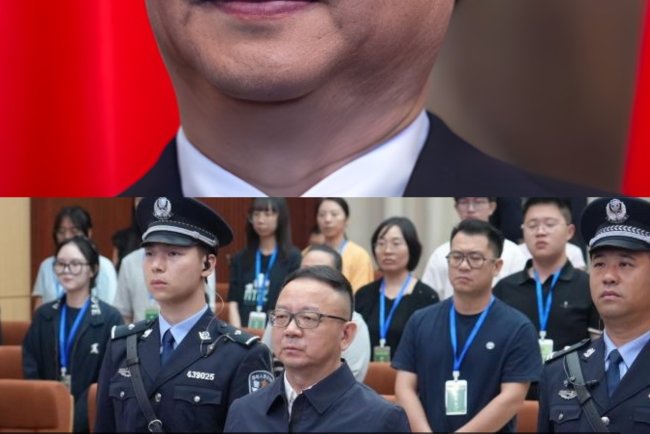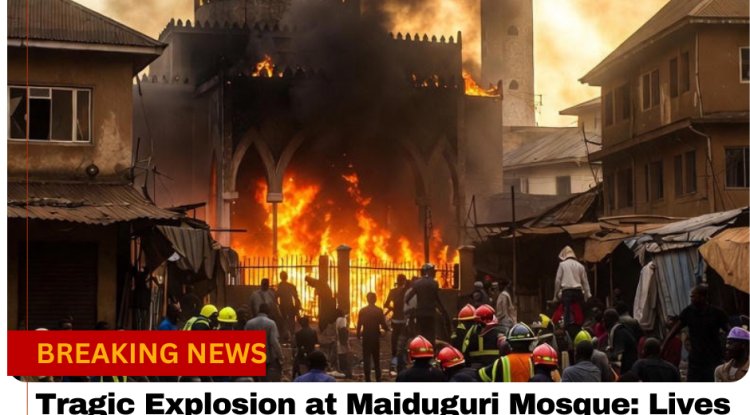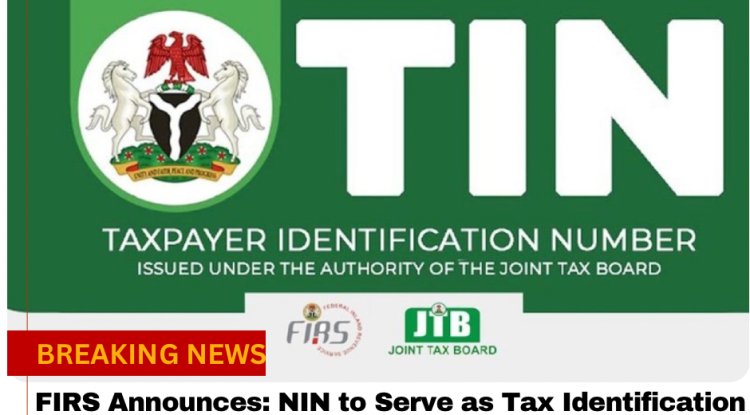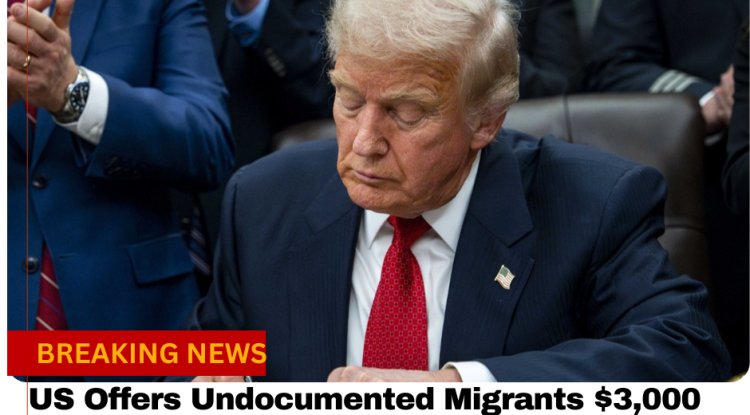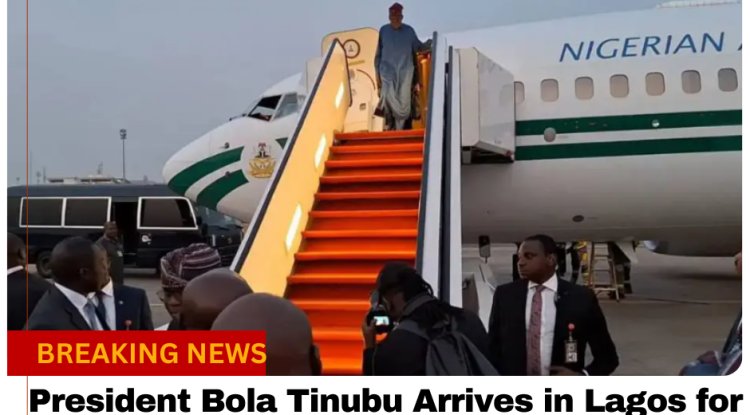Trump Declares Nigeria a “Country of Particular Concern” Over Religious Freedom Violations
U.S. President Donald Trump has re-designated Nigeria as a Country of Particular Concern for alleged religious-freedom violations, citing growing attacks on Christians.
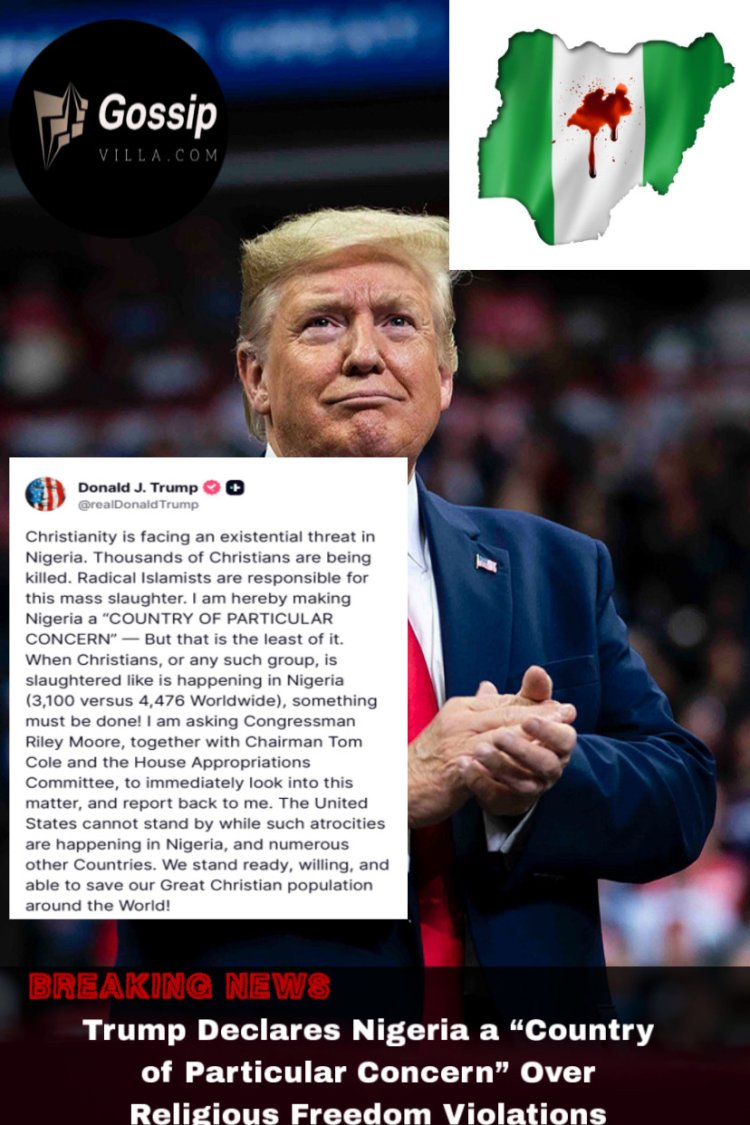
Trump Declares Nigeria a “Country of Particular Concern” Over Religious Freedom Violations
In a major diplomatic move, U.S. President Donald Trump has officially declared Nigeria a “Country of Particular Concern” (CPC) under the International Religious Freedom Act (IRFA). The decision, announced on Thursday, October 31, 2025, marks a significant escalation in Washington’s criticism of Nigeria’s handling of religiously-motivated violence and the protection of minority faith groups.
According to Trump, the designation comes after what he described as an “existential threat to Christianity in Nigeria,” citing widespread killings, abductions, and persecution of Christian communities in the country’s northern and central regions.
“Thousands of Christians have been brutally murdered, and countless churches burned. The United States cannot stand by while religious freedom is under siege.”
— President Donald Trump, White House press briefing, October 31, 2025
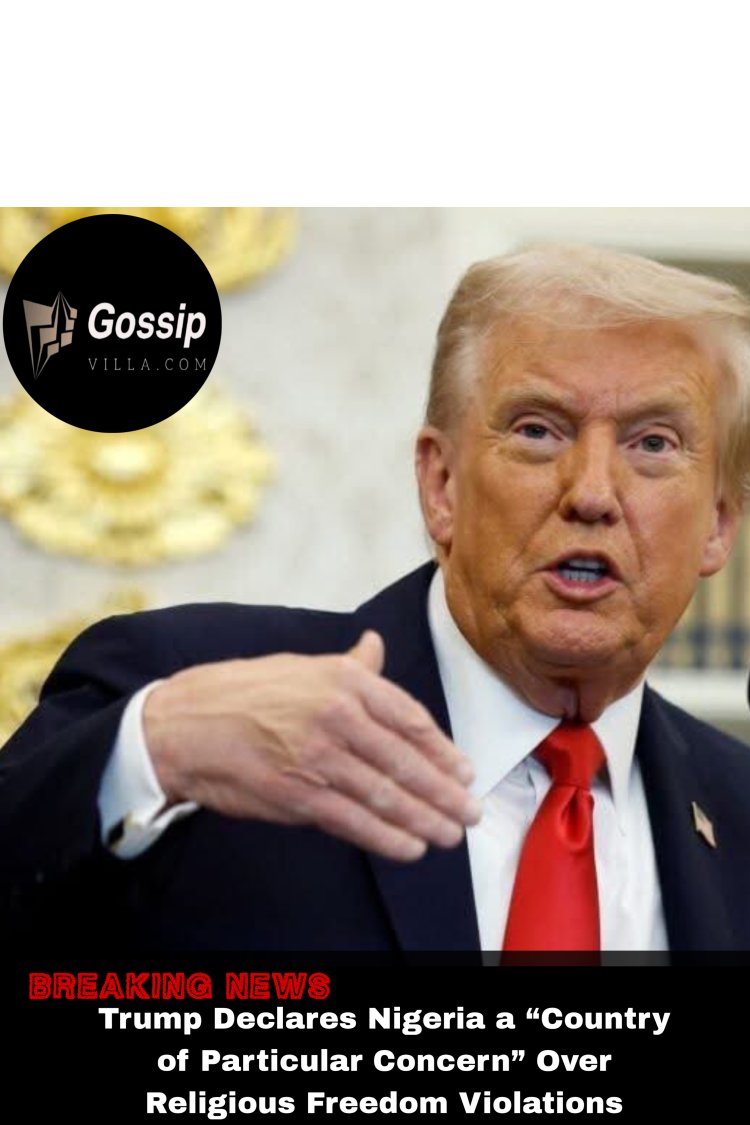
What the ‘Country of Particular Concern’ Status Means
The CPC designation is the most serious label the U.S. can assign under the International Religious Freedom Act of 1998. It identifies nations that engage in or tolerate “systematic, ongoing, and egregious violations of religious freedom.”
Once a country is placed on the CPC list, it becomes subject to potential U.S. sanctions, including:
• Restrictions on foreign aid
• Trade relations
• Military cooperation
• Access to U.S. financing
Other countries currently on the CPC list include China, North Korea, Pakistan, Iran, and Russia.
Human-rights advocates say the move sends a strong diplomatic warning to Abuja that the U.S. expects tangible progress in protecting religious minorities and prosecuting offenders behind sectarian killings.
The Crisis in Nigeria: Violence, Faith, and Complexity
Nigeria’s religious landscape is a powder keg: roughly evenly split between a Muslim-majority northand a Christian-majority south, with ethnic fault lines exacerbating tensions. The violence Trump references stems from multiple fronts, not a monolithic “radical Islamist” campaign.
• Jihadist Insurgencies: Groups like Boko Haram and Islamic State West Africa Province (ISWAP) have ravaged the northeast since 2009, killing over 40,000 people and displacing two million. Their attacks are brutal and indiscriminate, targeting schools, markets, and villages regardless of faith. Data from the Armed Conflict Location and Event Data Project (ACLED) shows that from 2020 to 2025, jihadists and other armed groups killed 52,915 civilians through targeted political violence.
• Farmer-Herder Clashes: In the central “Middle Belt,” disputes over shrinking arable land—fueled by population growth, climate change, and desertification—pit mostly Muslim Fulani herders against predominantly Christian farmers. These clashes have claimed thousands of lives, often framed religiously but driven by resource scarcity.
• Banditry and Kidnappings: In the northwest, criminal gangs (derisively called “bandits”) engage in mass abductions and extortion, affecting all communities.
Trump’s focus on Christian victims is poignant but incomplete. ACLED data reveals 389 attacks on Christians between 2020 and 2025, resulting in 318 deaths—tragic, but dwarfed by the 197 attacks on Muslims that killed over 400.
Experts like Massad Boulos, Trump’s advisor on Arab and African affairs, have noted:
“Boko Haram and Islamic State are killing more Muslims than Christians.”
ACLED’s Ladd Serwat echoes this, calling the jihadist violence “indiscriminate.”
In short, while Christians face real perils—churches burned, pastors targeted—the bloodshed is a humanitarian catastrophe engulfing all faiths.
Reactions from the Nigerian Government
The Nigerian government swiftly reacted to the announcement, calling the decision “unfair and politically motivated.”
In a statement issued by the Federal Ministry of Foreign Affairs, officials maintained that Nigeria protects freedom of worship for all citizens, insisting that religious violence in the country is driven more by criminal and ethnic factors than by state policy.
“Nigeria remains a secular nation. The violence we face is not targeted at any religion but at our collective peace and unity.”
— Ministry spokesperson, Abuja, October 2025
The government further expressed hopes that the U.S. would “review its stance based on accurate and verifiable data.”
Final Thoughts: A Call for Compassionate Clarity
President Trump’s CPC designation for Nigeria is a clarion call on religious freedom, spotlighting undeniable suffering. Yet, in reducing a tapestry of conflict to a binary of faith-based persecution, it risks deepening divides rather than healing them.
True progress lies in addressing root causes:
• Bolstering Nigeria’s security forces
• Investing in climate-resilient agriculture
• Fostering interfaith dialogues
As the U.S. navigates this, the world watches not just for sanctions, but for whether rhetoric translates to real relief for Nigeria’s weary millions.
Verified Sources
What's Your Reaction?








